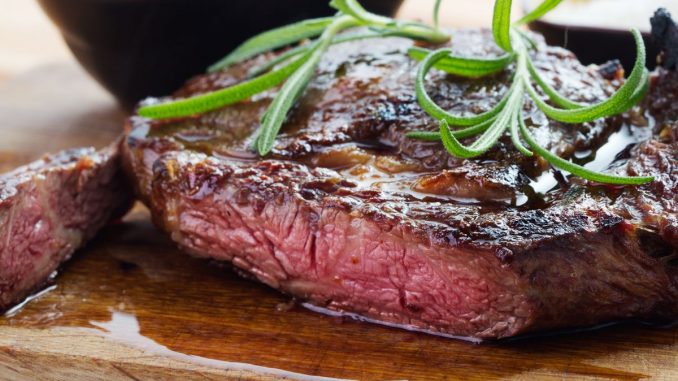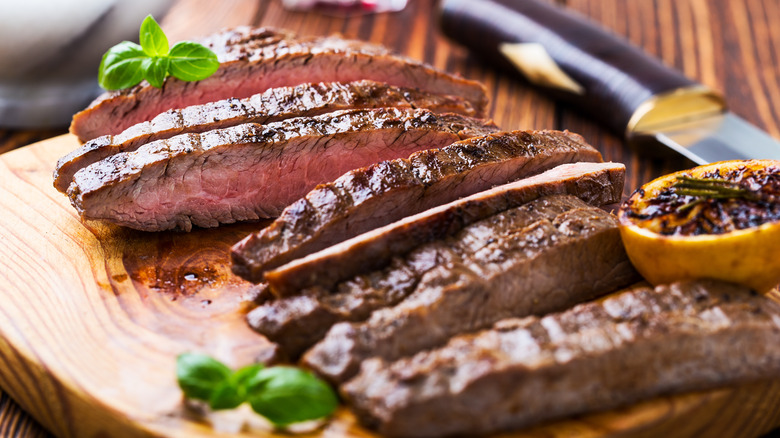
The meat from a bison animal is referred to as “bison”. It is thought that up to 60 million bison roamed the American countryside at one point. This number has probably risen to approximately 500,000 in more recent years. In the context of the United States’ beef cow population, this may seem like a significant quantity. As a result of this huge differential, recipes for bison meat may be more difficult to get than beef. Unlike certain cattle and swine, bison is usually pasture-raised rather than factory-farmed, although this practice is legal in some states.
Because of its claimed health advantages, bison meat has seen a recent surge in popularity. But, on the other hand, sales have grown by double digits each year. Bison meat is beneficial to your health in various ways, most of which have to do with the nutrients it contains.
Contains a High Level of Protein
Among the most commonly consumed meats, bison has one of the highest protein concentrations. Raw bison, for example, has 20.2 grammes of protein in just 146 calories per 100 grammes. The fat content of bison makes it high-protein meat. Bison is a great option for anybody who wants to maximise the protein in meat. Hence, like all beef, it is a “complete protein,” meaning it includes all nine necessary amino acids in sufficient levels. In other words, bison is a good source of highly accessible protein.

Essential Fatty Acids
Bison meat originates from grass-fed animals that spend their whole lives grazing on lush green pastures. Omega-3 fatty acids are more prevalent in meat from animals grown in the pasture. According to research, bison meat has more omega-3 (and less omega-6) than meat from factory-farmed animals. Grass-fed bison meat has a 3:1 omega-6 to omega-3 ratio. According to research, inflammation and obesity may be reduced as a result of a decreased omega-6 to omega-3 ratio.
Omega-3 supplementation has also been link to decreased levels of inflammation, according to a meta-analysis of 26 randomised controlled studies. Bison’s omega 6 to omega 3 ratio is comparable to that of grain-fed, factory-farmed pigs, which may have a ratio of up to 20:1. As well as bison nutrition facts and health benefits.
Vitamins B1 and B2
Bison is a great source of B vitamins, especially cobalamin (also known as vitamin B12), which is particularly rich in meat. B12 insufficiency is the most common in the general population; hence this vitamin is important. Vitamin B12 deficiency was discover in 27.3% of older German individuals, according to a recent study. Therefore, 93% of the recommend daily intake of vitamin B12 is found in an 8-ounce (227-gram) bison steak. There are several health advantages of taking B vitamins, including energy generation, healthy brain function, and the nervous system’s overall health.
Conclusion
Nutrient-dense bison has a wide range of vitamins and minerals that are good for you. This lean meat has a high protein content but little calories, and when prepared properly, it may be rather tasty. Because bison meat is so nutrient-packed, recipes for bison meat is a fantastic way to get your daily dose of protein.
